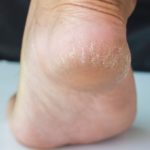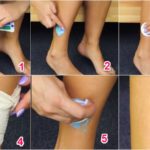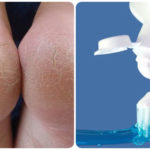Nosebleeds are often not a cause for concern. This is because the inside of the nose has a network of large and small blood vessels just below the surface of the mucous membrane, making it easy to be injured. When experiencing a nosebleed, it is important to stay calm and avoid panic to prevent an increase in blood pressure and excessive bleeding. Here are some effective home remedies to treat nosebleeds that you can reference and apply from Tintuconline.

Home Remedies for Nosebleeds
1. Apply cold compress outside of the nose
To help stop bleeding quickly, you can place a cold compress or cold towel across your nose. The low temperature stimulates blood vessel constriction, which helps to stop nosebleeds faster. One thing to note is not to directly apply ice directly to the skin as it can cause dangerous frostbite.
2. Prevent nosebleeds with saline solution
Thanks to its balanced concentration with the body’s environment, saline solution has the ability to moisturize the mucous membrane safely. In addition to its cleansing effect, saline solution also helps reduce irritation, sinusitis, and dependency on medication, thereby limiting factors that lead to nosebleeds. Therefore, this is also an effective way to handle nosebleeds that you can apply.
To use as a home remedy for nosebleeds, you can add 2 – 3 drops of saline solution to each nostril every day when the weather is dry or when the nasal mucosa is dry and irritated (can be replaced with a spray bottle). Also, don’t forget to drink enough water to moisturize your body from the inside.

3. Use cooling foods
– Eating cooling foods to treat nosebleeds based on folk experiences is a home remedy for nosebleeds with scientific basis. Cooling vegetables such as lotus root, garlic chives, white radish, pennywort, gourd, black beans… have the effect of stabilizing blood pressure.
– In addition, these foods also contain many essential vitamins and minerals that help strengthen the mucous membrane and blood vessels, especially vitamin C and K. You can easily find these components in many green leafy vegetables, bean sprouts, bell peppers, lemon, orange, guava, papaya, kiwi… So, eat plenty of fruits and vegetables to prevent nosebleeds.
2. Things to Avoid When Experiencing Nosebleeds
– Sit straight, never lie down or bend over, and always keep your head higher than your heart.
– Use your index finger and thumb to firmly hold both sides of the nostrils for at least 5 minutes and continue to hold for another 10 minutes if the bleeding does not stop. Breathe through your mouth.
– Tilt your head slightly forward to prevent the blood from flowing back into your throat.
– After the bleeding stops, do not bend your head, engage in vigorous activity, or blow your nose for a few days.
If you suspect that nosebleeds are related to the treatment of an underlying condition or the medication you are using, it is important to consult a doctor for necessary adjustments to effectively manage nosebleeds.
According to Tâm An – Vietnamnet
- Apply a cold compress or towel to your nose to constrict blood vessels and slow bleeding. Avoid direct ice contact with skin.
- Use a saline solution in each nostril daily to moisturize and cleanse the mucous membrane, reducing irritation and sinusitis.
- Consume cooling foods like lotus root, garlic chives, white radish, and black beans to stabilize blood pressure and strengthen blood vessels with vitamins C and K.
Here are some important things to remember during a nosebleed:
- Sit straight and keep your head higher than your heart.
- Pinch both nostrils firmly for at least 5 minutes, continuing for 10 more if bleeding persists, while breathing through your mouth.
- Tilt your head slightly forward to prevent blood from flowing down your throat.
After the bleeding stops, avoid bending your head down, engaging in strenuous activity, or blowing your nose for a few days.
Investigating Innovative Ways to Heal Unexpected Injuries with Skin Care Techniques
Do you need an accessible and natural way to take care of your skin and heal skin wounds? You can find a solution in your own kitchen – toothpaste, sugar, honey, olive oil, salt, oranges, and lemons can all be used to treat skin issues. Keep reading for more information on these simple yet effective DIY remedies.






































